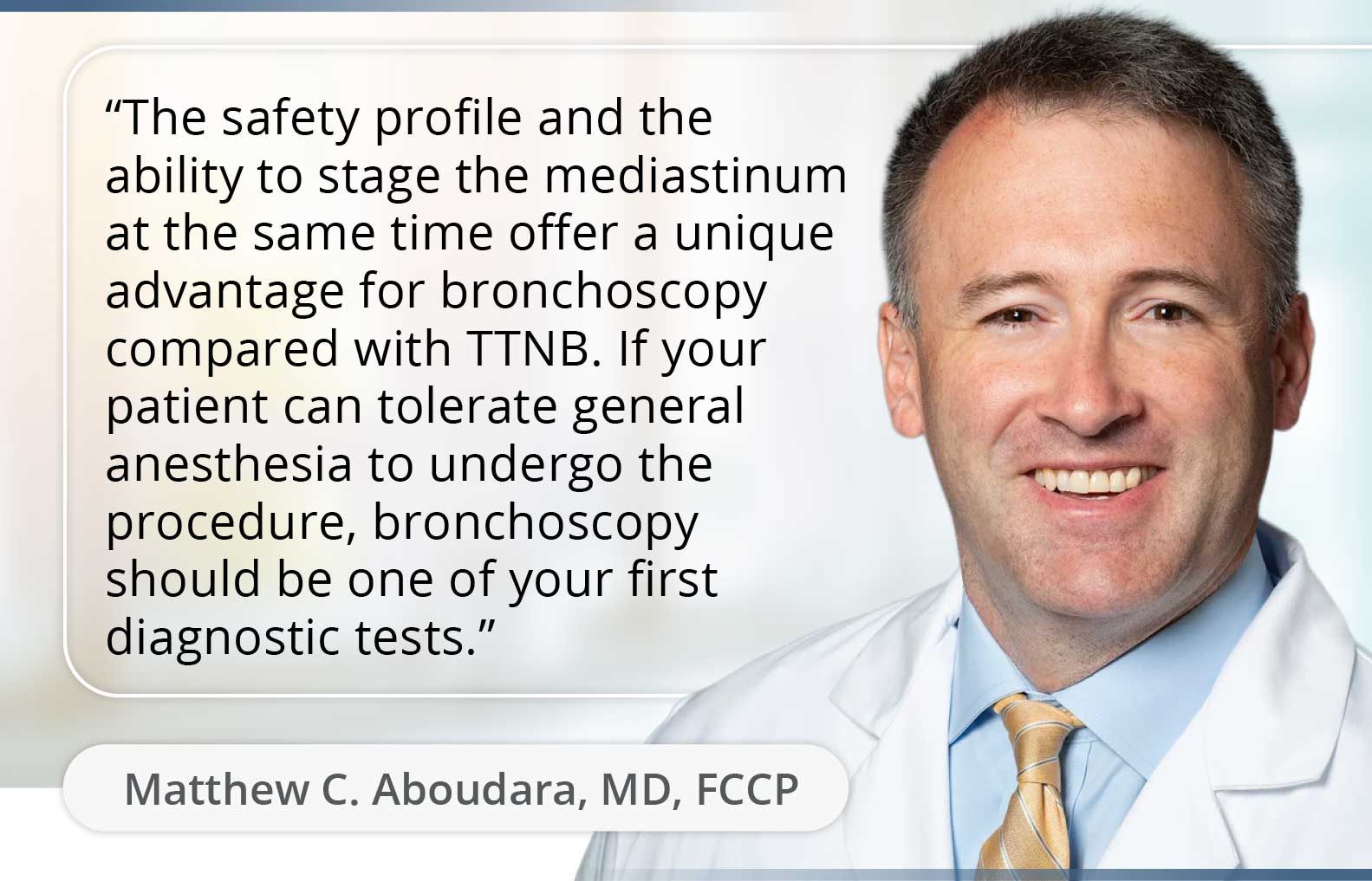CHEST Physician
-
Tezepelumab found to reduce oral corticosteroid use in severe asthma
The WAYFINDER study shows a clinically meaningful reduction in oral corticosteroid dosing, which may allow patients to get off steroids, said pulmonology expert Stephen T. Doyle, DO, MBA, FCCP.
-
New data confirms ILD as lung cancer risk factor
Bradford C. Bemiss, MD, and Claudia Henschke, PhD, MD, said the study clearly shows patients with interstitial lung disease have an increased risk of lung cancer.
-
Coping styles linked to cognitive complaints in OSA
Investigator Tim J.A. Vaessen, MSc, said the findings suggest clinicians should look beyond sleep apnea and mood symptoms when evaluating cognitive complaints.
-
Persistent mucus plugs linked to faster lung function decline in COPD
Investigator Sofia Mettler, MD, MPH, said the findings may point to a potential intervenable pathology in obstructive airway disease.
-
Airway crossroads: The overlap of bronchiectasis and obstructive lung disease
Bronchiectasis frequently coexists with asthma or COPD, forming an overlap phenotype that’s increasingly recognized but often overlooked.
-
Practical applications of the new CMS national coverage determination guidelines for noninvasive ventilation in COPD
Many durable medical equipment companies have already started applying the new NIPPV criteria, so it is important for clinicians to become familiar with the changes.
-
Post-intensive care syndrome: Beyond the ICU
As we shift from a survival-focused paradigm to one that embraces recovery and restoration, addressing PICS must become a routine component of ICU care.
-
Noninferiority data move navigational bronchoscopy into frontline lung biopsy discussion
Given the favorable safety profile seen in the VERITAS trial, investigator Matthew C. Aboudara, MD, FCCP, said the approach should be considered alongside CT scan-guided transthoracic needle biopsy.
-
Varenicline found effective for nicotine vaping cessation in youth
Researcher A. Eden Evins, MD, said she was surprised by the ineffectiveness of behavioral therapy alone.
-
Oseltamivir beats supportive care for patients hospitalized with seasonal influenza
Investigator Anthony Bai, MD, MSc, and infectious disease expert Christina Thornton, MD, PhD, discuss a large analysis that showed an in-hospital mortality rate of 3.5% for oseltamivir vs 4.9% for supportive care.










